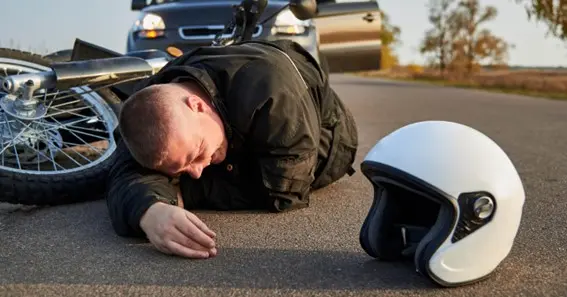Riding a motorcycle on the open roads evokes a thrilling sense of liberty. However, motorcycle accidents can severely damage that freedom in the blink of an eye. For example, the recent Myrtle Beach motorcycle accident. In the U.S. alone, over 80,000 motorcyclists are injured every year. All riders must know how to respond after an accident. In the traumatic aftermath of a motorcycle collision, it’s crucial to act swiftly. Make informed decisions to protect your safety, rights, and recovery journey.
Prioritize Safety First
When a motorcycle accident happens, it can be very scary. People can get hurt badly. Even if you are not hurt, it is normal to feel shocked or panicked. But the most important thing is to make sure everyone is okay and prevent more accidents. If injuries are evident, consider reaching out to a motorcycle accident attorney in Myrtle Beach who can provide invaluable guidance for safeguarding your rights during this critical phase.
Here are some simple steps to focus on safety first:
- Look around very carefully at the accident scene before moving anyone. See if cars or other motorcycles are still driving where they could hit someone. If it looks dangerous, try to get yourself and injured people further away from traffic, if possible.
- In many motorcycle crashes, riders may hit their heads. Helmets protect heads from more severe injuries. Before taking off someone’s helmet after an accident, check very gently if their head, neck, or back is hurt first. If the spine or neck seems injured at all, leave the helmet on until the ambulance comes so the head stays stable. If it seems stable, gently remove the helmet to help them breathe more easily. However, watch their necks closely, just in case.
- If someone seems badly bleeding or struggling to breathe, use a clean cloth to softly press against injuries. This will help slow bleeding. If you are properly trained, do hands-on CPR. Do not try to move them or do first aid unless necessary to prevent more pain or greater harm.
- Mark the accident area with cones, flares, hazard lights, or triangular reflector signs on the road edges. This will warn other cars and bikes to slow down and move over. It will also prevent more collisions. If possible, keep yourself and injured people out of traffic areas until emergency help arrives. Or, wait until law enforcement safely closes the road.
The most crucial thing is making the situation less dangerous and stopping more harm. First aid and warning signs for drivers can help protect accident victims. Making good decisions is also important. Safety must come before anything else after a motorcycle crash.
Also Read N: Top Considerations When Selecting Online Plumbing Professionals in Lubbock
Contact Emergency Services
- Call 911, even for seemingly minor collisions.
- Provide clear details on the location, injuries sustained, and vehicles involved.
- Request police presence to file an official report.
Emergency response times average around 8 minutes in urban areas, emphasizing the need for a quick call.
Also Read P: How Can RMM Software Improve Remote IT Support Services?
Seek Medical Care ASAP
Don’t brush off pain or delay treatment. Some injuries, like spinal cord damage or internal bleeding, manifest slowly after accidents. An early evaluation and documentation by a doctor can support future injury prevention measures and claims.
Sadly, motorcycle accidents cause 30 times more fatalities per mile than car crashes.
Capture the Accident Scene in Detail
Photos and videos are extremely important for recording the details after a motorcycle crash. As soon as it is safe to do so, take pictures of the entire area, including property damage (vehicles, signs, guardrails, etc.). Get wide-angle shots first to show the whole picture. Then take closer images of the vehicles. Capture skid marks or tire marks on the road, debris scattered around, blood or fluids on the pavement, and damaged items.
Go carefully around the scene to capture all the physical evidence from many angles before anything moves. If possible, talk to people who witnessed the crash and get their full names, contact information, and written accounts. Their honest, firsthand observations will be significant later. Gather concrete facts, not rumors or speculation. Measure any skids or distances between vehicles and objects using footsteps or common items for scale. Exact sizes matter legally. Compile all photos and witness statements. These details provide critical proof when sorting out what happened and who is liable.
Work With Responding Police
Cooperating politely with law enforcement officers when they arrive leads to the best outcome after an accident. However, avoid making off-hand remarks about who did what or speculating on blame. Stick to only answering the questions asked until investigations reveal more facts.
If an officer asks, calmly provide your license, vehicle registration, and proof of insurance. These documents help them file an accurate report. Before leaving the scene, ensure you get a copy of the official accident report. Also, get the responding officer’s badge number for your records. This independent account often holds considerable legal weight for the crash. It is regarding causes, responsibilities, and liabilities. The investigation may frustrate you at times. Remain patient and courteous with law enforcement at the outset. This enables a constructive process going forward. Representing events fairly but without allegation also puts you in the most credible position.
Inform Insurance Immediately After Crash
Contacting your motorcycle insurance company promptly is critical after an accident. Insurance policies often require being alerted within 24 hours of any crash you are involved in. Failing to quickly report it can mean your claim for damages is denied for late notice.
When first speaking with a claims adjuster or agent soon after an event, stick to just stating the factual details you know for certain. Only provide concrete accounts from law enforcement, medical personnel, and eyewitnesses. Do not guess what might have happened based on incomplete memory. Answering an insurer’s initial questions is not accusing or speculating. Simply supply them with the objective information and documents on hand so far. This includes accident photographs, medical evaluations, police reports, and contact information for those involved.
Insurers record these early conversations and the facts shared. Avoiding subjective statements and admitting fault prevents mistaken impressions. Full investigations can proceed. Cooperating amicably and saving all documentation aids in the claim process. However, over-sharing or repeated inconsistent accounts can potentially be used against you. For now, just inform your insurer promptly with the facts.
See An Attorney for Legal Advice
Laws regarding vehicle liability can be complex. Allowable actions after motorcycle collisions can also be complex. An experienced motorcycle accident attorney in South Carolina can advise if you have grounds for a personal injury claim. They can determine if negligent drivers are at fault. They also ensure critical paperwork gets filed on time. This helps recover damages for motorcycle accident injuries.
State statutes dictate strict deadlines for injury lawsuits stemming from motorcycle wrecks. Missing these cutoffs forfeits your rights to pursue legal action entirely. A lawyer ensures critical paperwork gets filed on time, should that route become necessary. They represent clients in settlement negotiations to demand fair compensation. If reasonable agreements fail, they can build strong court cases. They can do this by gathering more evidence and compelling testimonies from crash experts.
Speaking with a qualified lawyer soon after an incident provides clarity on your options. Many personal injury attorneys offer free first consultations. They only collect payment if they secure damages for you later on. Having strong legal guidance empowers victims to recover losses successfully.
Maintain Ongoing Written Records
As you recover, keep detailed records of
- Doctor visits and prescribed treatment
- Medications and medical equipment rentals
- Lost wages from missed workdays
- Other accident-related expenses
Stay in touch with your insurance adjuster regarding the claims process. Progress takes time, with most motorcycle claims resolving in six months, on average.
Conclusion
Over 80,000 annual motorcycle collision-related injuries emphasize the perils riders face. Yet knowledge and prompt action can make all the difference for safety and recovery after an accident.
Every step taken in the traumatic aftermath of motorcycle accident injuries critically impacts the road ahead. Whether prioritizing emergency response, seeking legal counsel, or methodically tracking expenses related to accident-related injuries.
Stay safe on the open roads and always wear helmets. Also, arm yourself with this motorcycle accident response checklist. It will help you act wisely if the unimaginable occurs. With thoroughness and resilience, riders can reclaim their freedom.
Frequently Asked Questions
- What first steps should I take following a motorcycle crash?
After ensuring everyone’s safety, immediately contact law enforcement and emergency medical services. Taking photos of the scene and the vehicles involved also provides valuable documentation of events.
- What information does the insurance company need?
Insurance companies require prompt notification. Provide all available details and documentation collected at the scene. This includes medical evaluations, police reports, and eyewitness statements. Avoid speculating on events or admitting fault.
- When should I contact a lawyer after a motorcycle accident?
Consulting a personal injury attorney helps protect your rights. It also helps determine liability and eligibility for compensation. It assists in navigating litigation complexities and negotiating fair settlement offers. With 75% of victims hiring lawyers, legal guidance is advisable in most cases. Speak to an attorney as soon as feasible after the incident.










